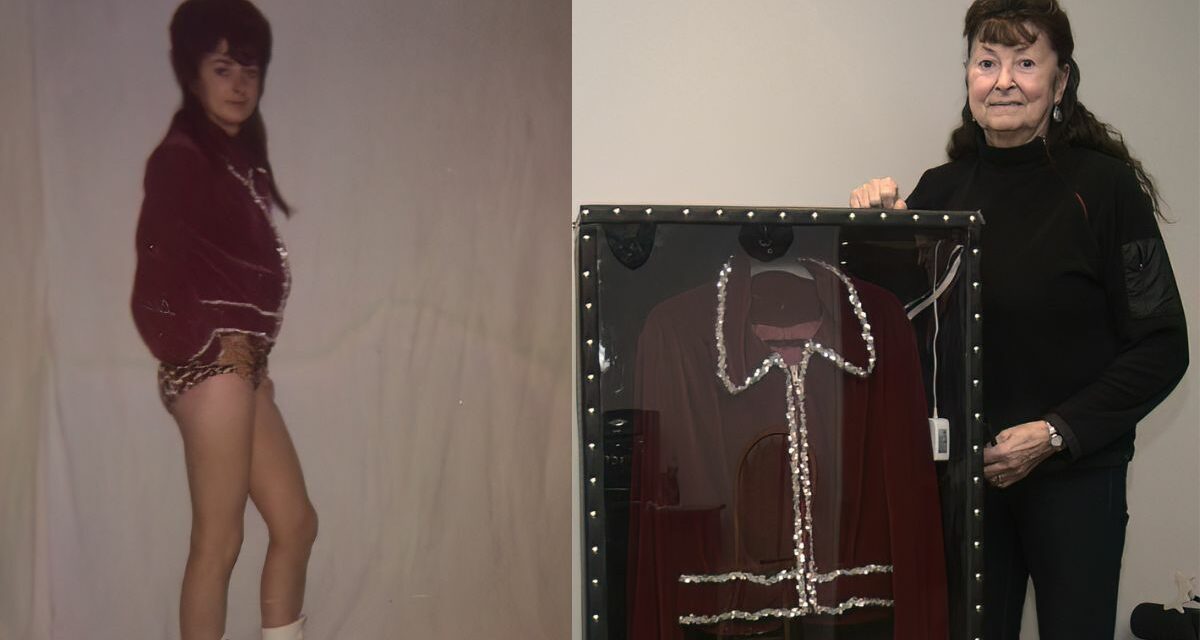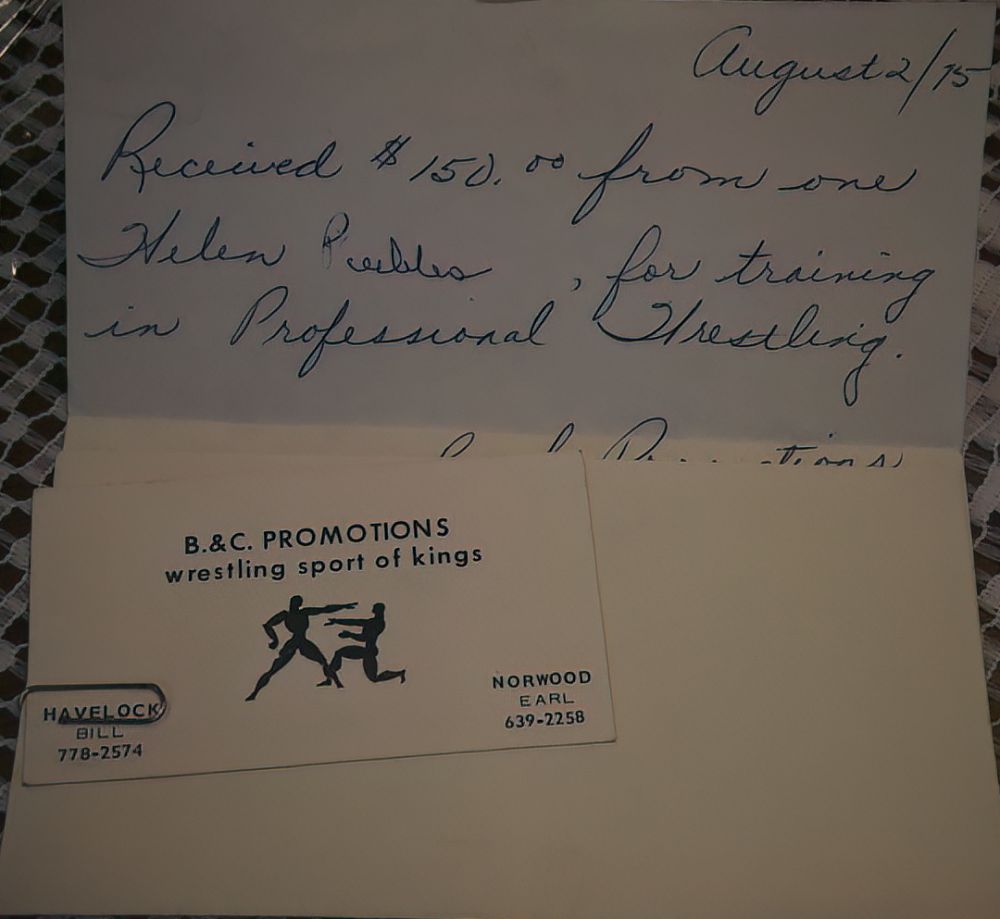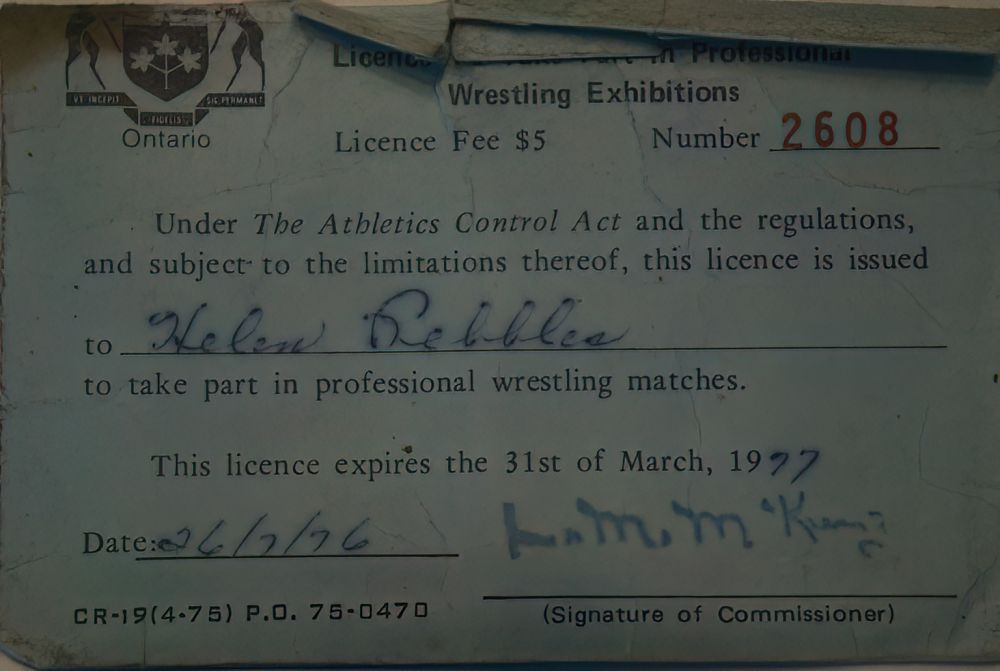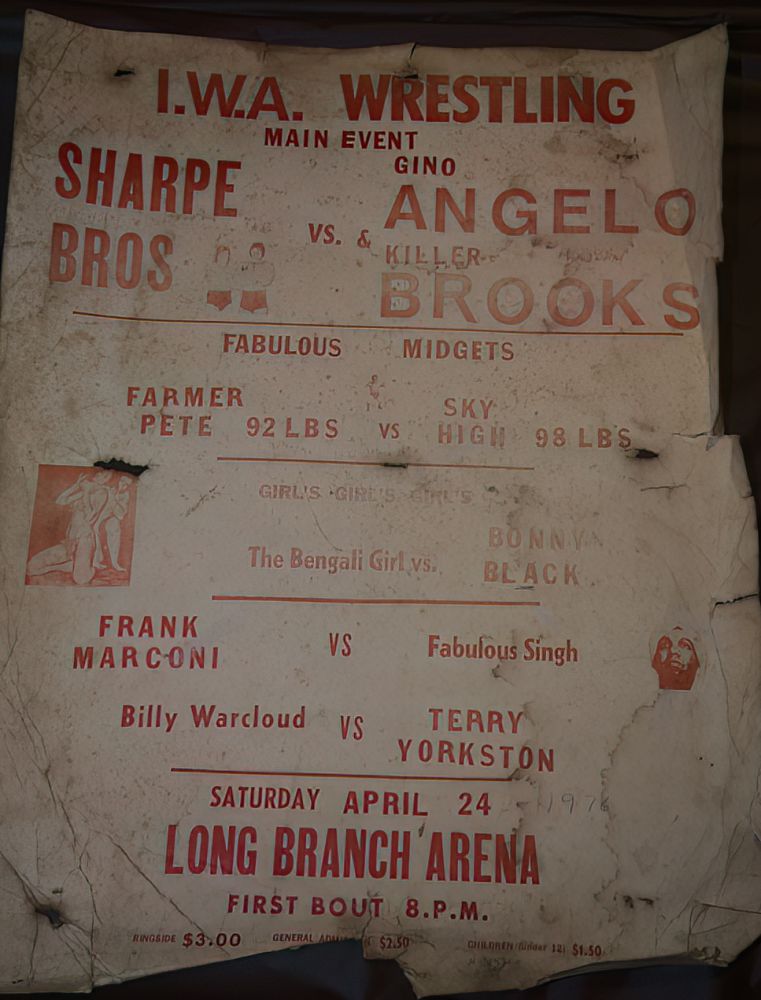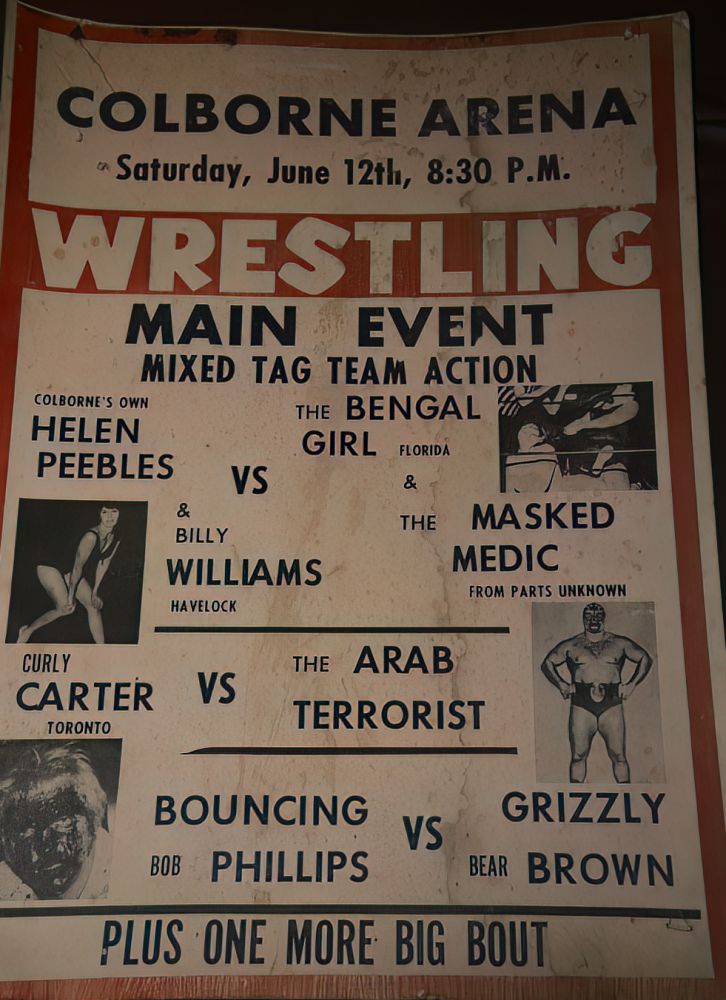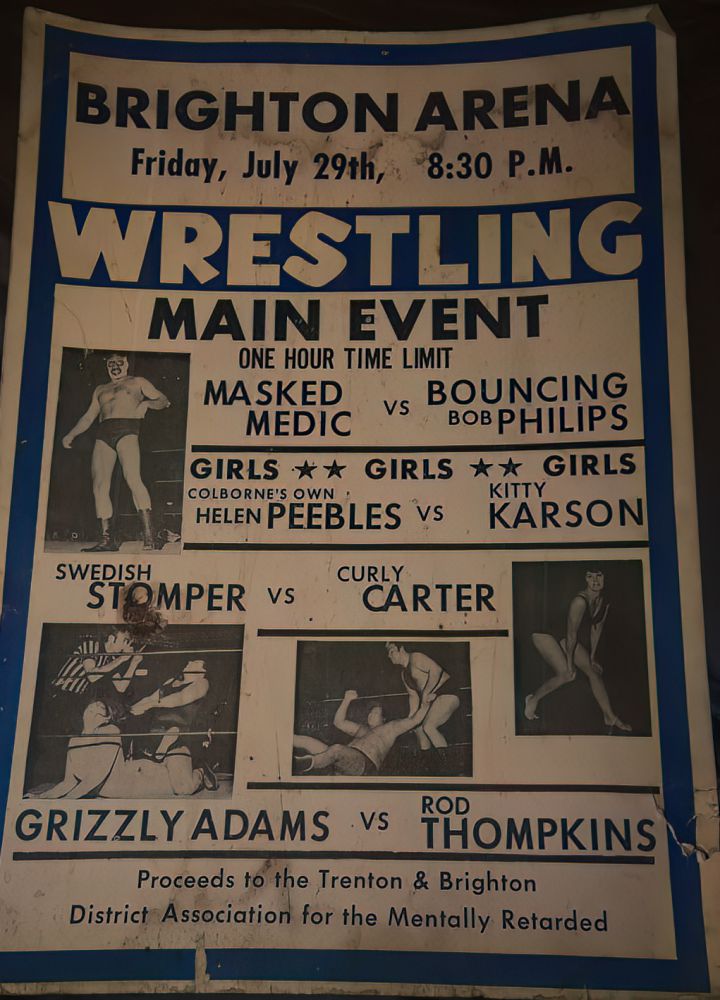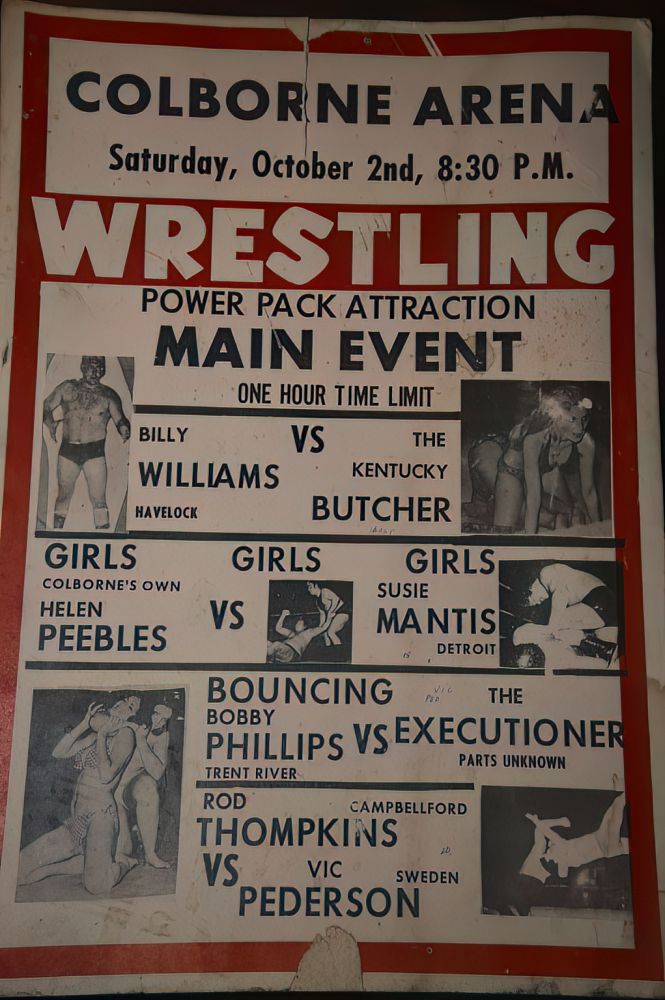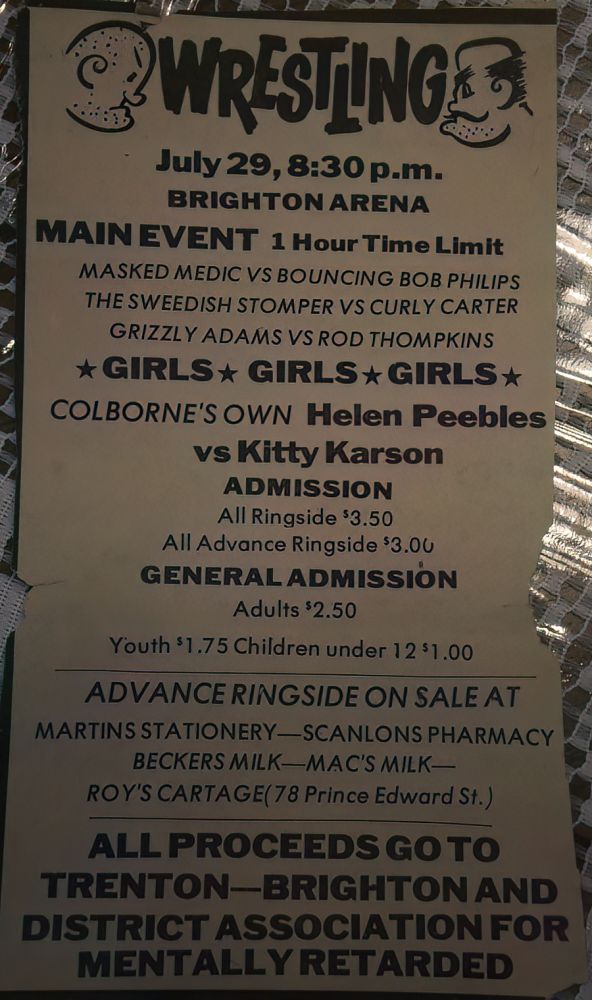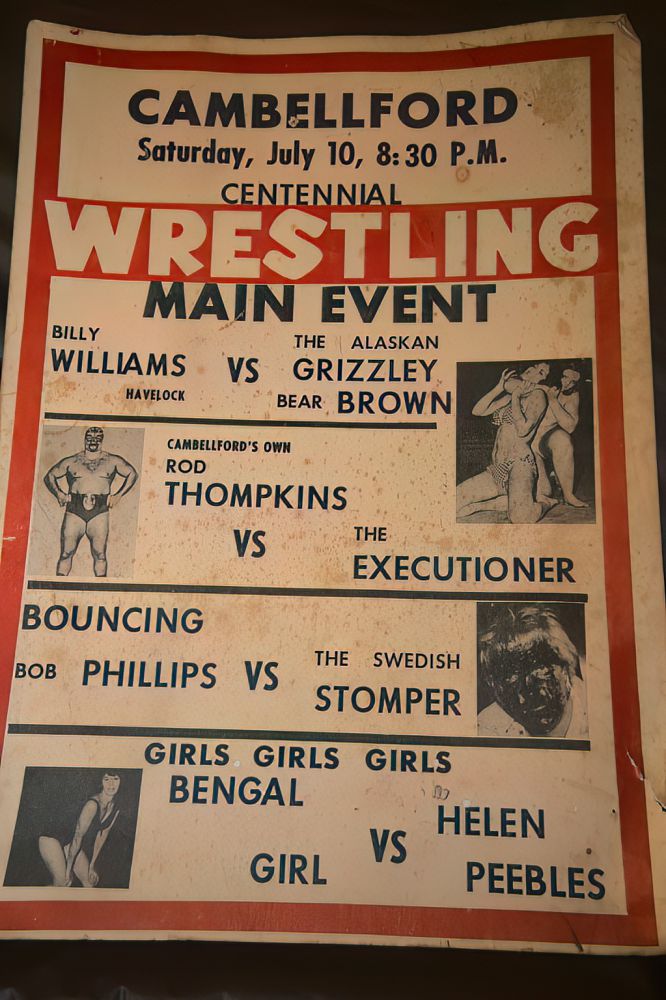Hyper-local is one of those phrases that are thrown around today, referring to the idea that, in an ideal world, everything one needs to survive could be sourced nearby, from food to friends, and goes hand in hand with terms like the 15-minute city.
It doesn’t always apply to pro wrestling, as independent wrestlers, by their very nature, are nomads, willing to hop in a car or on a plane to make the next town, to appear in front of new eyes in the hope that they might one day be discovered.
But there have always been homesteaders too, the local wrestlers who had real jobs and wrestled as a side gig. They might not be known nationally but were well known in that territory.
Driving down another level we get to Helen Peebles, who wrestled mainly under her real name and on a couple of occasions as Bonnie Blake and Bonnie Black.
The limits of her brief run in the wrestling business are primarily confined to near to her original hometown of Colborne, Ontario, a small town along the eastern route, from Toronto towards Montreal. Most know it as a part of the Apple Route in the province, and the tourist attraction The Big Apple along the 401 highway. Draw lines from Colborne and Lake Ontario west, north and east, but not very far, and you get other small towns like Brighton, Renfrew and Campbellford.
That was pretty well the extent of Peebles’ wrestling travels during her career in the 1970s.
There was a good reason for staying close to home.
“I worked at General Motors [in Oshawa],” Peebles told SlamWrestling.net. “It was a big torque gun and stuff like that.” She worked the line, in a variety of roles, until retiring. Then, in so-called retirement, Peebles and her husband Richard built houses. “We worked hard,” she summed up.
Her entry into pro wrestling wasn’t exactly planned. Peebles, born October 22, 1949, would go to the wrestling matches, usually with her sister. At one of the Colborne shows, the promoter approached her and suggested that maybe she would consider wrestling. He pointed her to Bill Boyington, who wrestled as Billy Williams. “I was surprised that I even got an opportunity. But I used to be kind of vocal when I was up in the audience watching. Maybe that’s why he asked me to join,” mused Peebles.
Helen and Richard talked. “I said, ‘If you want to do it, do it,” recalled Richard. She wasn’t especially a jock, but played recreational baseball and was healthy. She was, however, a little older than the usual beginning wrestler – 27 years old, with two young children at home.
“He trained me in Campbellford,” noted Peebles, meaning that she drove over two hours for training in Earl “Curly” Carter’s basement. Boyington himself didn’t live there either, and drove an hour from Norwood.
As for the length of the training, “it must have been a couple of months, maybe even a little longer.”
The smartening up didn’t happen in a direct way. “We practiced and we did some pretty good moves. But it wasn’t that long until they were taking me into the ring,” she said.
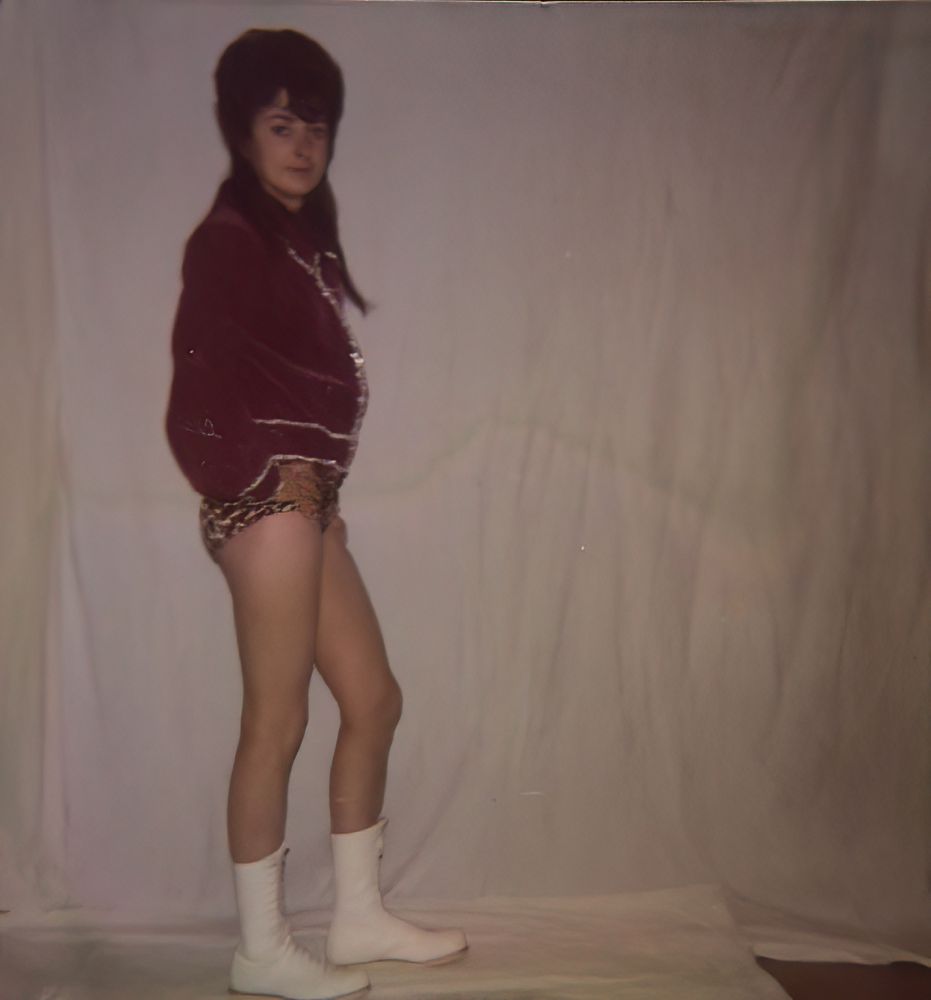
Helen Peebles during her wrestling days.
By the time she started wrestling, Peebles’ mother had passed away, but her father loved the idea of her in the ring. Her father-in-law, though, was opposed. “Richard’s dad, he kept telling me it was phony, it was phony and everything else,” she said. “He said, you pick them up? Let me know. So I picked him up and put him in an airplane spin. He knew he had to behave after that.”
Peebles, who was pretty well always a babyface, wore a bathing suit on her 5-foot-5, 125-pound frame, and made a jacket to wear to the ring. The white boots were an issue. Helen and Richard went to Montreal, where Richard’s brother lived, figuring they could just buy wrestling boots anywhere in a big city. “Then it was Bill that gave you the place to order them from,” added Richard.
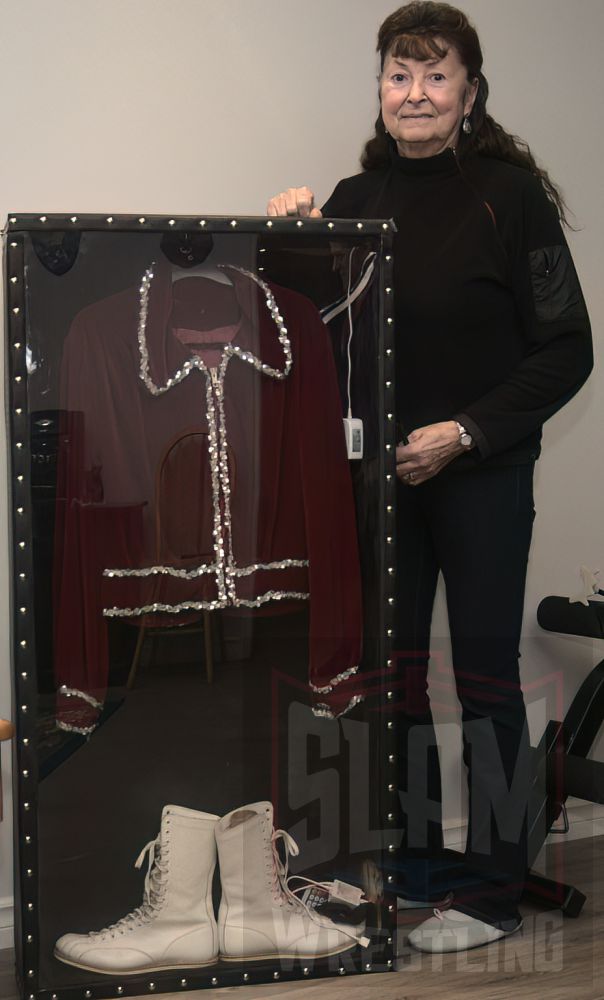
Helen Peebles poses with her ring jacket and boots. Photo by Michael Drukarsh
That first wrestling payday? Five dollars.
The wrestling shows put on by Boyington and his partner Earl “Curly” Carter (B & C Promotions “wrestling sport of kings”) almost exist in a vacuum. During the interview, Peebles knew none of the other women that were named working around Ontario in the 1970s, like Beverly Shade, Carmen Monge, Rachael Dubois, Jean Baxter.
Instead, the names on the cards of B & C Promotions only result in more questions. Who was The Swedish Stomper, The Arab Terrorist, The Masked Medic or Grizzly Bear Brown? On the distaff side, who was Bengal / Bengali Girl (Peebles just recalled her as having darker skin) or Kitty Karson?
Peebles apologizes for not being a lot of help with the old names. “I can’t say anything stands out in particular, because we mainly did our match and we went home,” she explained.
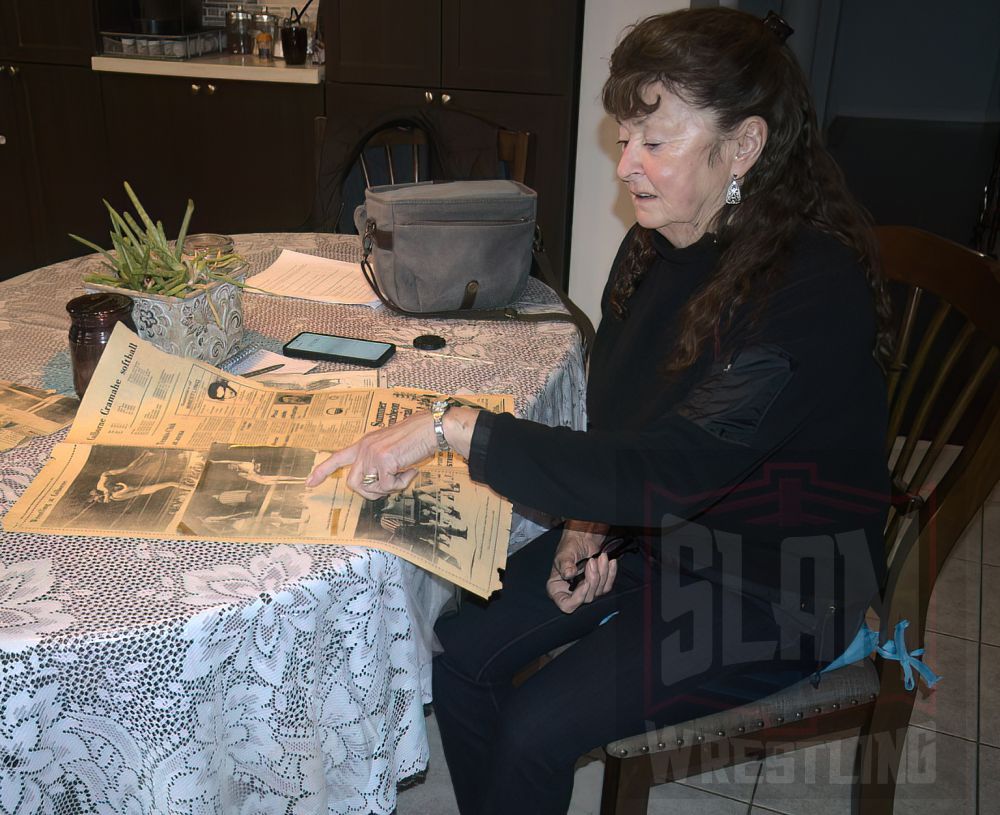
Helen Peebles looks through her wrestling memorabilia. Photo by Michael Drukarsh
With everyone so spread out and having real jobs, there wasn’t a ton of camaraderie. “Bill [Boyington] wasn’t one to really get together with people. So, I probably would have stayed in it longer, if I had been under somebody else, put it that way,” said Peebles.
There’s a What If? factor for Peebles, too, as at one card, outside of the nearby towns – the sole outlier show, really – she was scouted. That was in Long Branch Arena, in Toronto’s far west end, down by Lake Ontario. Of all the cards dug up with Peebles on it, this IWA Wrestling card has by far the most notable names:
Saturday, April 24, 1976
Long Branch Arena * Toronto, Ontario
Randy & Danny Sharpe (Randy & Danny Johnston) vs Gino Angelo & Killer Brooks
Farmer Pete vs Sky High (midgets)
Bonnie Black vs Bengali Girl
Frank Marconi vs Fabulous Singh
Billy Warcloud vs Terry Yorkston
“When we went to Toronto, Tiger Jeet Singh wanted me to join his group. And then Billy said no. Yeah, it was one of those things,” Peebles reminisced.
All these wrestling memories had long been stored away. Boyington’s death in 2008 was Peebles’ only real contact to the past. “With me, when it was over, it was kind of over it. I put my pictures away and that was it.”
Then, not that long ago, Scott Peebles, one of two sons of Richard and Helen Peebles, went to a comic book store on Water Street in Port Perry, Ontario, and talked about selling some comics with the owner, known as Dave Wyldstar—who also happened to be a long-time wrestling promoter. Scott told Wyldstar about his mom, and the ball started rolling.
Scott told his mom that there was a wrestling show not too far away from their new place in Oshawa, Richard and Helen having downsized from previous home. He insisted that they go. They did.
“Nobody knew me when I walked in there and all of a sudden they got me involved. I was really embarrassed, but I wouldn’t trade it for anything,” said Peebles. Brother Yates of the Saved Boys was tipped off that she was in the audience and played his villainous schtick to her. “My husband said. ‘You should have got up and whelped him one.'” Peebles was impressed by the amount of merchandise the wrestlers had available for sale, something she never had.
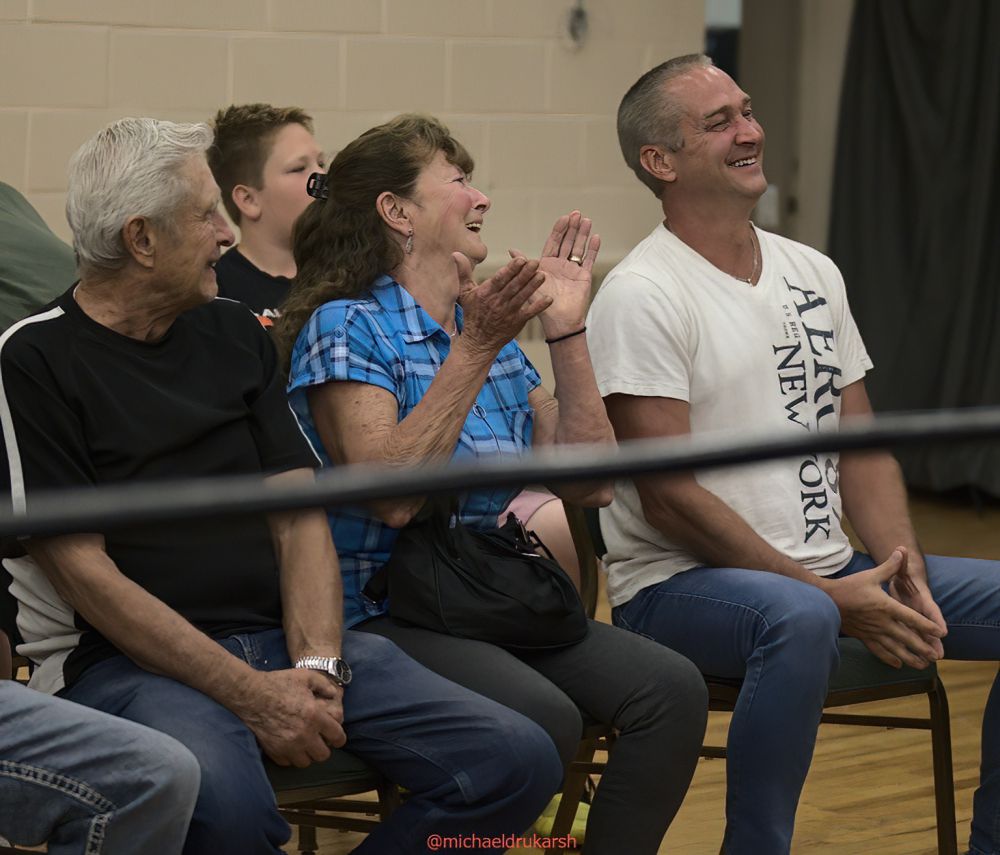
Helen Peebles, with her husband Richard and son Scott, at a GCW show in Oshawa, Ontario, in July 2023. Photo by Michael Drukarsh
After the card, Peebles was invited to the dressing room, where she could talk to some of the wrestlers. The two women wrestlers on the card had a good chat with her.
“Helen Peebles is an important part of our history, not just because she was a wrestler or a Canadian, but because she was a pioneer. A woman in a man’s sport,” said Great Canadian Wrestling promoter Wyldstar. “Women like Helen helped make it possible for women all over Canada to be able to perform in the squared circle. Honoring the past and keeping these stories alive is no less important than anything we do today.”
With five grandkids and seven great-grandkids, Peebles’ best memory from the show wasn’t in the ring, but outside it.
“There was a little boy and he had an outfit to match one of the wrestlers. His mom and him were talking and she said, ‘I think that he likes this wrestler.’ So I said, ‘Oh, do you want to be a wrestler one day?’ And I said, ‘Maybe I should take your picture, because if you become a wrestler, I’ve got a picture of you now. … Imagine what that little kid thought!”
Photographer Michael Drukarsh accompanied Wyldstar to the Peebles home and came away impressed. They reminisced as Peebles showed off yellowed newspaper articles from the past. There she was getting her hair pulled by a masked wrestler in an intergender bout. She had a handwritten note about her initial wrestling training— $150—and a couple of wrestling licenses ($5).
“We made our way downstairs to a basement full of clutter from their recent move,” recalled Drukarsh. “Despite not being set up fully, standing in what almost looked like place of honor, Helen had her very first ring jacket, hand sewn by her, along with her first pair or wrestling boots, bought in Montreal. Also inside the glassed case were several wrestling promo posters, each one carrying the scars of authenticity. A suggestion from Dave to have them digitally restored was quickly shot down by me, stressing the importance of preserving them as is and perhaps framing them, individually to put up around the pool table once the basement is finished.”
Drukarsh treasures the visit. “It was a pleasure to sit with Helen, and I could not help but notice a twinkle in her eye as she talked about her days in the squared circle. As we walked out from the basement, her husband showed me the workout room they are setting up, complete with weights and aerobic equipment,” he said. “I asked if they were there to get Helen ready for her comeback, there was a laugh, but I didn’t hear ‘no.'”
HELEN PEEBLES POSTERS AND MEMORABILIA
Photos by Michael Drukarsh
